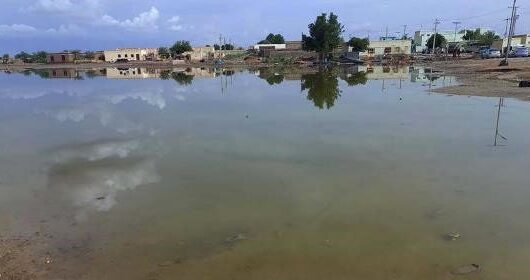BTN News: Sudan is currently grappling with a severe cholera outbreak that has claimed the lives of 22 people and infected hundreds more in recent weeks. This latest health crisis is unfolding in a nation already devastated by a brutal 16-month conflict and catastrophic flooding, compounding the suffering of its population. As Sudan’s healthcare infrastructure crumbles under the weight of ongoing warfare, the cholera outbreak has become yet another tragedy for a country struggling to cope with one disaster after another. The situation is dire, with many of those affected by the disease having limited access to medical care, further exacerbating the death toll.
Sudan’s Health Minister, Haitham Mohamed Ibrahim, recently confirmed that at least 354 cholera cases have been reported across the country, resulting in 22 deaths. The minister did not specify the timeline of these fatalities, but the World Health Organization (WHO) has documented 78 cholera-related deaths in Sudan this year up until July 28. The WHO also noted that over 2,400 people were infected with cholera between January 1 and July 28, indicating that the disease has been a persistent threat throughout the year.
Cholera is a highly contagious infection that can rapidly evolve and prove fatal within hours if left untreated. The disease, which causes severe diarrhea and dehydration, is typically transmitted through contaminated food or water. Given the ongoing conflict and the resulting destruction of critical infrastructure, including sanitation systems, the spread of cholera in Sudan is alarming but not entirely unexpected.
The cholera outbreak adds to Sudan’s long list of woes. The country has been mired in chaos since April of last year when tensions between the military and a powerful paramilitary group escalated into a full-blown civil war. The fighting has turned cities like Khartoum, the capital, into battlefields, decimating civilian infrastructure and further crippling an already ailing healthcare system. With many hospitals and medical facilities shuttered due to a lack of basic supplies, the ability to respond effectively to the cholera outbreak has been severely compromised.
The ongoing conflict in Sudan has claimed thousands of lives and left many more on the brink of starvation. A famine has already been declared in a large displacement camp in the northern region of Darfur, highlighting the desperate conditions faced by many Sudanese. The conflict has also sparked the world’s largest displacement crisis, with over 10.7 million people forced to flee their homes since the violence began. More than 2 million of these displaced individuals have sought refuge in neighboring countries, adding to the regional humanitarian burden.
The situation in Sudan has been further exacerbated by recent torrential floods that have wreaked havoc across the country. In the past few weeks, dozens of people have lost their lives, and critical infrastructure in 12 of Sudan’s 18 provinces has been swept away by the rising waters. According to local authorities, the flooding has displaced approximately 118,000 people, compounding the challenges faced by the already struggling population.
Cholera is not new to Sudan. A significant outbreak in 2017 resulted in at least 700 deaths and sickened around 22,000 people within a span of just two months. The current outbreak reportedly began in the eastern province of Kassala before spreading to nine localities across five provinces. Tarik Jašarevic, a spokesperson for the WHO, pointed out that the majority of those affected by the current outbreak had not been vaccinated against cholera. The WHO is now collaborating with Sudanese health authorities and other partners to roll out a vaccination campaign in an effort to curb the spread of the disease.
As Sudan battles the combined impacts of conflict, displacement, flooding, and now a deadly cholera outbreak, the international community faces the daunting task of providing the necessary aid and support. The crisis in Sudan is a stark reminder of the devastating consequences that can arise when multiple humanitarian emergencies converge, leaving a vulnerable population with limited resources to fend for itself.


